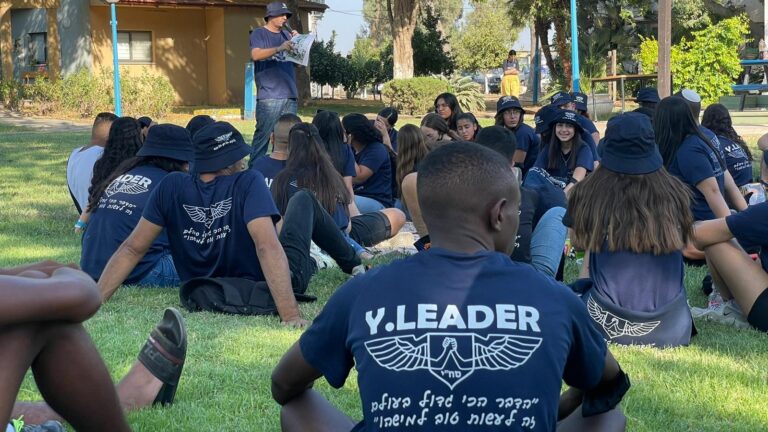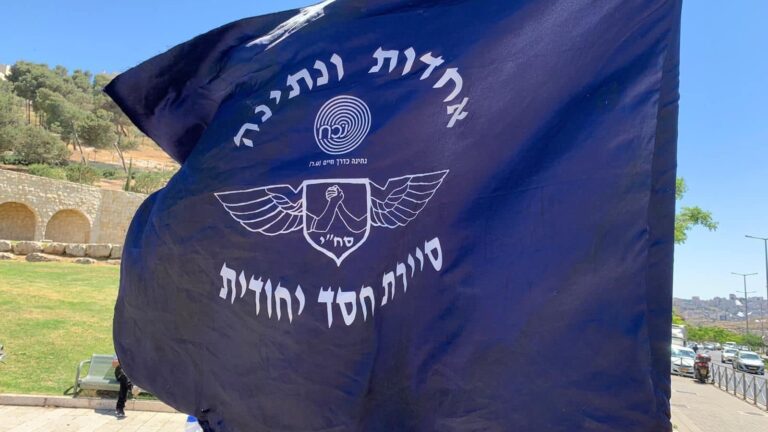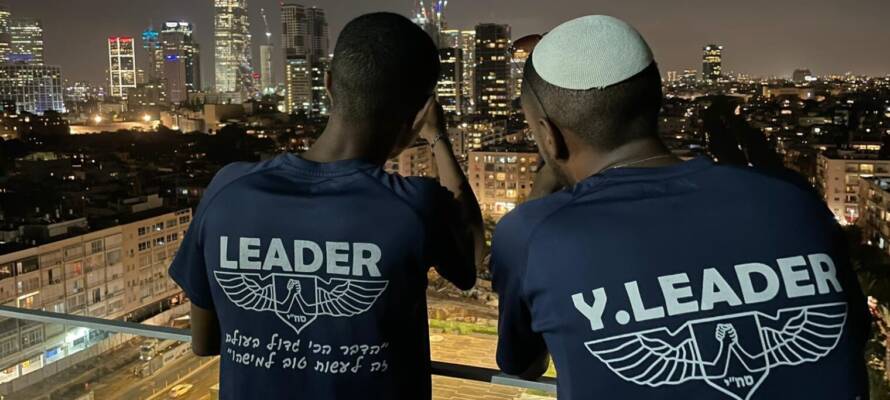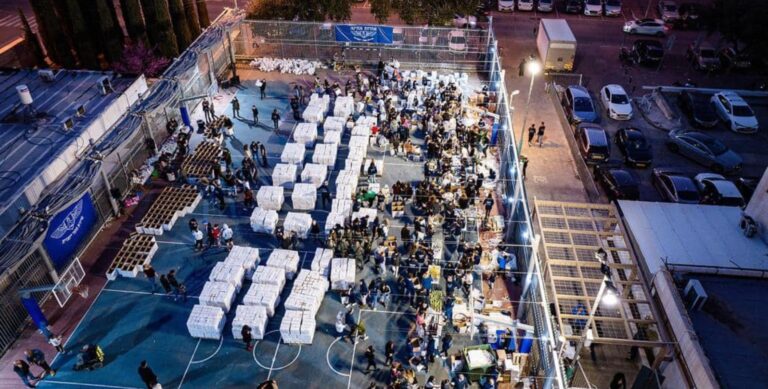SAHI was founded on the belief that the greatest thing in the world is to do good for somebody.
By Abigail Klein Leichman, ISRAEL21c
It all began in July 2009 with seven teens hanging out and looking for trouble in a crime-ridden neighborhood of a southern Israeli town. When they saw two men starting a bonfire in a parking lot, they came closer to check it out.
Avraham Hayon and Oded Weiss offered the kids cups of fire-brewed tea and coffee. They asked the kids to help organize anonymous weekly deliveries to the doors of neighbors suffering from food insecurity.
“The greatest thing in the world is to do good for somebody” became the slogan of the organization that mushroomed out of what Hayon and Weiss started in Kiryat Gat that night.
Today, more than 1,500 kids aged 13 to 19 perform voluntary community service through 44 chapters of Sayeret Chessed Yechudit (SAHI) – the Special Grace Unit – in depressed communities from Beersheva in the south to Hazor Haglilit in the north.
In addition, hundreds of SAHI alumni continue as goodwill ambassadors and even leaders in the program in their next stage of life – a life that would have looked starkly different had they not been saved by the magic of giving.
“We tell these teens, ‘We need your help to help others.’ We make them givers and not takers. This is how to reach an individual’s full potential,” says Hayon.
Win-win-win
A major research study on SAHI’s effect over the years – with participation of world-renowned Israeli-American behavioral economist Dan Ariely — supports Hayon and Weiss’s approach.
“We always said it’s a win-win model, changing the teens’ lives and the receivers’ lives. We support over 2,000 needy families and Holocaust survivors every week, and provide Passover and Rosh Hashana food packages to 7,000 households,” says Hayon.
“The research shows there is a third win: the whole community is changed for the better when there is a SAHI group in it,” he tells ISRAEL21c.
“The neighborhood feels proud that its own teenagers are taking care of needy neighbors and many of the kids’ adult relatives become volunteers with SAHI. The whole wellbeing of the community is strengthened.”
The things you give
Hayon, the 45-year-old CEO of SAHI, left his management job in 2009 out of the conviction that “in the end, the only things that stay with you are the things you give.”
A friend introduced him to Weiss, a youth counselor who had founded the Netina K’Derech Chaim (Giving as a Way of Life) Association in 2007 and recognized an urgent need to instill a sense of self-worth in at-risk youth in Kiryat Gat.
Today, Hayon and Weiss oversee a staff of 80, and a growing percentage of them are alumni.
“Teenagers who were once problematic are now youth counselors for the younger ones. This is our real way to change neighborhoods from the inside,” says Hayon.
“What we teach them is to open their eyes to anyone who needs help in the community. When you’re part of SAHI you’re on a mission all the time.”

One alumnus put it this way: “Before we were in SAHI we would sit around, messing things up, harassing the neighbors, making noise, burning stuff, wrecking the neighborhood, writing on walls. We were bored. Today all I think about is helping my neighbors.”
National recognition
SAHI won the President’s Award for Volunteering during the Covid pandemic.
“During the lockdowns, we became like an emergency squad, starting in Jerusalem when the municipality called us about 3,000 children who used to get food in schools through city feeding programs,” says Hayon.
“They gave us 3,000 addresses and we were able to build an emergency operation because we have volunteers in the most needy neighborhoods.”

SAHI’s Covid activities quickly expanded elsewhere.
“We realized that many older people needed medicine or household help so we built a team that called lone elders to check on them and see what they needed,” says Haon.
“In Ofakim [in the south], our teens began visiting an older gentleman who lived alone. He asked for help cleaning his house, and they arranged to come the following Sunday. But on Sunday he didn’t answer his phone and we told them to go and check on him. Outside his apartment, they heard him calling for help, and they contacted emergency services. The police said the children definitely saved his life.”

